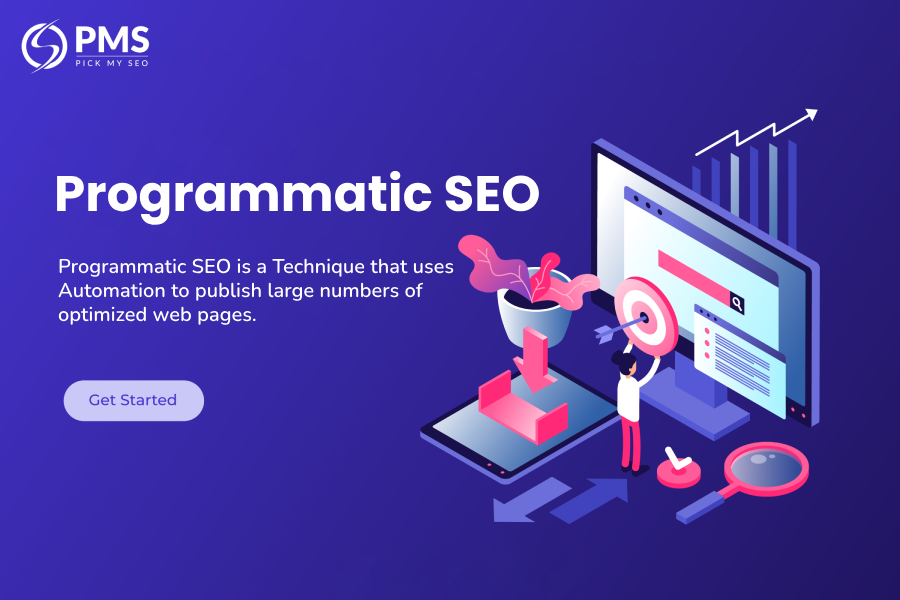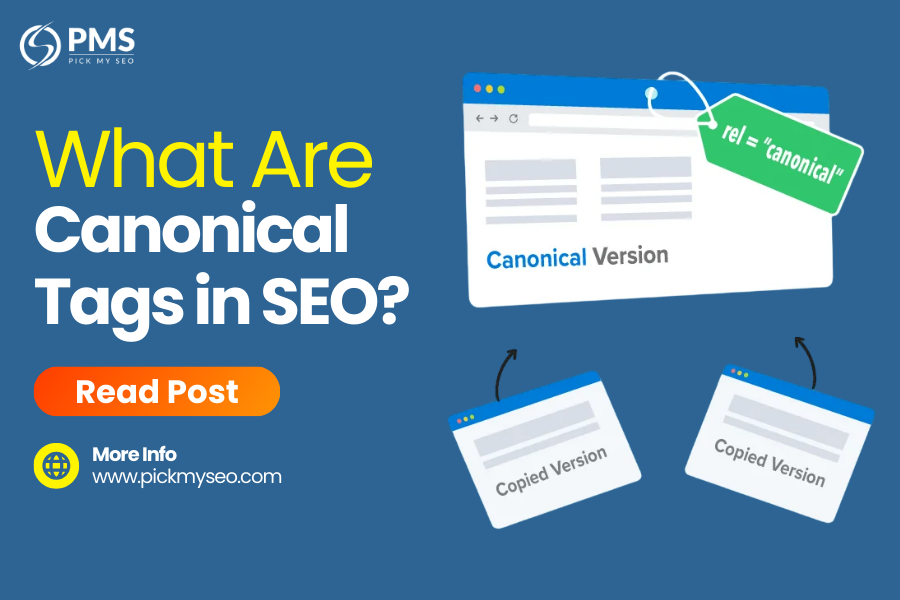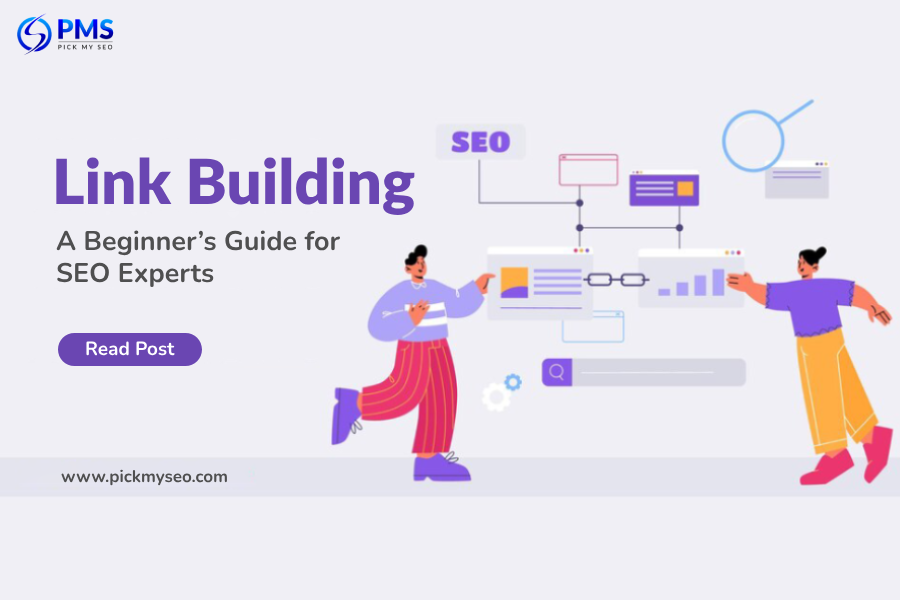Table of Content
- What is Ecommerce SEO?
- key components of Ecommerce SEO
- How can Ecommerce SEO benefit your online store?
- Ecommerce SEO mistakes to avoid
- How does Ecommerce SEO differ from traditional SEO?
- Ecommerce SEO Strategies for Small Businesses
- How can Ecommerce SEO help increase conversion rates?
- How Pick My SEO will help in making your Business Successful?
In today’s competitive world, having a successful online store means more than just having a great product. It’s about making sure your target audience can find you amidst the sea of competitors. That’s where Ecommerce SEO (Search Engine Optimization) comes into play.
What is Ecommerce SEO?
Ecommerce SEO is the art and science of optimizing your online store’s website and content to rank higher in search engine results. When done right, it can drive more organic traffic to your site, increase visibility, and ultimately boost sales.
What are the key components of Ecommerce SEO?
Ecommerce SEO, or Search Engine Optimization, is like the magic wand that makes your online store visible to potential customers on search engines like Google. It’s not rocket science, but it does involve some key components that work together to boost your store’s visibility and attract more shoppers. Let’s uncover these essential components in simple terms:
- Keywords: Keywords are essential terms or phrases that individuals input into search engines while seeking products. It’s imperative to pinpoint the appropriate keywords for your online store. Think about what your customers might search for and use tools like Google Keyword Planner to find relevant keywords. Then, sprinkle these keywords naturally throughout your website content, including product titles, descriptions, and headings.
- Optimized Product Pages: Your product pages are like the virtual shelves of your online store. Optimizing them involves making sure they are easy for both customers and search engines to understand. This means using descriptive product titles, writing detailed product descriptions, and optimizing images with descriptive file names and alt text. Also, don’t forget about user-friendly URLs and meta tags!
- Mobile-Friendly Design: More and more people are shopping on their smartphones, so having a mobile-friendly website is no longer optional—it’s essential. Google even gives priority to mobile-friendly sites in its search results. Ensure your ecommerce site is responsive and looks great and functions smoothly on all devices, from desktops to smartphones and tablets.
- Site Speed: Have you ever visited a website that takes forever to load? It’s frustrating, right? Well, slow-loading websites not only annoy users but also hurt your search engine rankings. Speed up your site by optimizing images, minimizing HTTP requests, and leveraging browser caching. Tools such as Google’s Page Speed Insights can assist you in pinpointing areas where enhancements can be made.
- Quality Content: Content is king, even in ecommerce SEO. Creating high-quality content that provides value to your audience can help improve your search engine rankings and attract more visitors to your site. Consider starting a blog where you can share helpful tips, industry news, or product reviews. Remember, the key is to create content that your customers will find useful and engaging.
- User Experience (UX): User experience plays a significant role in both SEO and customer satisfaction. A website that is easy to navigate, loads quickly, and provides a seamless shopping experience is more likely to rank higher in search results and convert visitors into customers. Focus on creating a user-friendly interface, clear navigation, and intuitive design.
- Backlinks: Backlinks are like votes of confidence from other websites. They indicate to search engines that your website is reliable and credible. Focus on earning high-quality backlinks from reputable websites in your industry through strategies like guest blogging, influencer partnerships, and participation in industry forums or communities.
- Analytics and Monitoring: Last but not least, it’s essential to monitor and analyze your ecommerce site’s performance regularly. Tools like Google Analytics and Google Search Console provide valuable insights into your site’s traffic, user behavior, and search engine performance. Utilize this data to pinpoint areas for enhancement and fine-tune your SEO strategy progressively.
How can Ecommerce SEO benefit your Online Store?
First and foremost, Ecommerce SEO is your ticket to increased visibility. Picture this: You’ve got a fantastic lineup of products, but if no one can find your online store, what good does it do? Ecommerce SEO ensures that your store appears at the top of search engine results when potential customers are searching for products like yours. This heightened visibility means more eyes on your products and, ultimately, more potential customers clicking through to your site.
But wait, there’s more! Ecommerce SEO isn’t just about getting people to visit your store—it’s about attracting the right kind of visitors. By optimizing your website for relevant keywords and phrases, you’re not just casting a wide net; you’re honing in on the audience that’s most likely to convert into paying customers. This targeted approach means higher-quality traffic to your site, leading to increased sales and revenue.

Speaking of revenue, let’s talk about the bottom line. Ecommerce SEO is a cost-effective method to generate organic traffic to your online store or website. Unlike paid advertising, where you have to shell out cash every time someone clicks on your ad, SEO generates organic traffic that’s essentially free. Sure, it takes time and effort to implement an effective SEO strategy, but the long-term payoff in terms of sustained traffic and sales far outweighs the initial investment.
But perhaps the most significant advantage of Ecommerce SEO is its ability to level the playing field. In the world of online retail, big-budget players with deep pockets often dominate the market. But with a well-executed SEO strategy, even smaller online stores can compete on a level playing field. By focusing on optimizing your website for relevant keywords, providing valuable content, and delivering an exceptional user experience, you can carve out your slice of the market and stand toe-to-toe with the big boys.
In summary, Ecommerce SEO offers a plethora of benefits for your online store. From increased visibility and targeted traffic to cost-effective marketing and a level playing field, the advantages are undeniable. So why wait? Embrace the power of Ecommerce SEO today and watch your online store soar to new heights of success.
What are the common Ecommerce SEO mistakes to avoid?
When it comes to Ecommerce SEO, avoiding common mistakes can significantly impact your success. Let’s explore some simple tips to ensure you’re steering clear of these pitfalls:
- Neglecting Keyword Research: Skipping thorough keyword research means missing out on opportunities to attract your target audience. Take the time to understand what phrases your customers are searching for and strategically integrate them into your website content.
- Ignoring On-Page Optimization: On-page optimization involves fine-tuning individual pages of your website for search engines. Ignoring this step means missing out on valuable opportunities to enhance your site’s visibility.
- Overlooking Mobile Optimization: With the increasing trend of browsing and shopping on mobile devices, having a mobile-friendly website is essential. Neglecting mobile optimization can result in a poor user experience and lower search engine rankings.
- Slow Page Loading Speed: Slow-loading pages frustrate users and can lead to higher bounce rates. Search engines also penalize slow websites in their rankings. Optimize your website’s speed by reducing image sizes, utilizing browser caching, and optimizing code for faster load times.
- Duplicate Content: Duplicate content can confuse search engines and diminish your site’s authority. Avoid copying and pasting product descriptions from manufacturers or other websites. Instead, create unique and original content for each product page to enhance your site’s SEO performance.
- Lack of Product Reviews: Product reviews not only provide valuable information to potential customers but also contribute to your site’s SEO.
- Poor Internal Linking: Internal linking assists search engines in navigating and understanding your website’s structure.
- Neglecting Analytics: Without monitoring and analyzing your website’s performance, you’re essentially operating blindly. Set up tools like Google Analytics to track key metrics such as traffic, bounce rate, and conversions.
How does Ecommerce SEO differ from traditional SEO?
SEO plays a crucial role in boosting a website’s visibility and attracting more visitors. When it comes to SEO, there are two main approaches: Ecommerce SEO and Traditional SEO. While both aim to improve a website’s ranking on search engines like Google, they have some key differences.
Ecommerce SEO focuses specifically on online stores or websites that sell products. Its main goal is to increase traffic, sales, and revenue for these online businesses. Traditional SEO, on the other hand, applies to all types of websites, including blogs, news sites, and company websites, regardless of whether they sell products.
One of the biggest differences between Ecommerce SEO and Traditional SEO is the emphasis on product optimization. In Ecommerce SEO, it’s essential to optimize product pages with relevant keywords, high-quality images, detailed product descriptions, and customer reviews. This helps potential customers find the products they’re looking for and encourages them to make a purchase.
In contrast, Traditional SEO focuses more on optimizing content such as blog posts, articles, and landing pages to attract visitors and generate leads. While product pages are still important for Traditional SEO, they typically play a smaller role compared to other types of content.

Another difference lies in the complexity of keyword research. In Ecommerce SEO, keyword research involves identifying keywords that potential customers are likely to use when searching for products online. This requires a deep understanding of the target audience, as well as knowledge of industry trends and competitor analysis.
Traditional SEO, on the other hand, may involve a broader range of keywords related to the website’s topic or niche. This can include informational keywords, transactional keywords, and long-tail keywords that address various aspects of the subject matter.
Furthermore, Ecommerce SEO often involves optimizing product listings for multiple channels, such as Google Shopping, Amazon, and eBay. Each of these platforms has its own set of algorithms and best practices, requiring tailored optimization strategies for each one.
In contrast, Traditional SEO primarily focuses on optimizing content for search engines like Google, Bing, and Yahoo. While there are differences in algorithms and ranking factors between these search engines, the overall optimization approach remains largely the same.
Overall, while both Ecommerce SEO and Traditional SEO aim to improve a website’s visibility and attract more visitors, they have distinct differences in terms of focus, keyword research, and optimization strategies. Understanding these differences is essential for developing effective SEO strategies that meet the unique needs of each type of website.
5 Best Ecommerce SEO Strategies for Small Businesses
When it comes to ecommerce, Search Engine Optimization (SEO) plays a vital role in driving traffic to your website and increasing sales. Here are five effective ecommerce SEO strategies tailored for small businesses:
- Keyword Research: Conduct thorough keyword research to understand what terms potential customers are using to search for products similar to yours. Utilize tools like Google Keyword Planner or SEMrush to identify relevant keywords with moderate to high search volume and low competition.
- Optimize Product Pages: Ensure each product page is optimized for search engines by including detailed and unique product descriptions, high-quality images with descriptive filenames, and relevant meta tags. Optimize product titles by incorporating primary keywords and providing clear, concise information about the product’s features, benefits, and specifications. Additionally, optimize product URLs to be short, descriptive, and keyword-rich, making it easier for search engines to index and rank your pages.
- Mobile Optimization: With the increasing prevalence of mobile devices, it’s essential to optimize your ecommerce website for mobile users.
- Content Marketing: Invest in content marketing to attract and engage your target audience while improving your website’s SEO performance. Create informative blog posts, product guides, how-to articles, and customer reviews to establish your brand as an authority in your industry.
- Local SEO: Take advantage of local SEO strategies to target potential customers in your area and drive foot traffic to your brick-and-mortar store, if applicable.
How can Ecommerce SEO help increase conversion rates?
In the vast world of online shopping, getting visitors to your ecommerce site is just the first step. What really matters is turning those visitors into paying customers. That’s where Ecommerce SEO steps in, working its magic to boost your conversion rates. Let’s break down how it happens in simple terms:
- Enhanced Visibility: When people search for products online, they usually click on the first few results that pop up. Ecommerce SEO helps your website rank higher in search engine results pages (SERPs), making it more likely for potential customers to find and click on your site.
- Targeted Traffic: Unlike traditional advertising methods that cast a wide net, Ecommerce SEO attracts highly targeted traffic. This means the people visiting your site are already interested in what you sell.
- Improved User Experience: Ecommerce SEO isn’t just about pleasing search engines; it’s also about creating a seamless experience for your visitors.
- Trust and Credibility: Ranking high in search results not only increases your visibility but also builds trust and credibility with potential customers.
- Continuous Improvement: By constantly refining your SEO efforts based on real-time data, you can continue to increase your conversion rates and stay ahead of the competition.

How Pick My SEO will help in making your Business Successful with the Help of Ecommerce SEO?
With the advance strategies of Ecommerce SEO, we can take your business to new heights of success together. we’ll ensure that your products and services are prominently displayed to your target audience. Imagine the thrill of seeing your website climb the ranks, attracting more visitors who are eager to explore what you have to offer. With our expertise in optimizing your online presence, we’ll make sure that every click translates into meaningful interactions and, ultimately, sales.
But success isn’t just about numbers; it’s about impact. Through Ecommerce SEO, we’ll help you connect with your audience on a deeper level, touching hearts and inspiring action. Imagine the satisfaction of knowing that your brand isn’t just another option but a trusted companion on life’s journey. Together, we’ll create unforgettable experiences that leave a lasting imprint, turning customers into brand ambassadors who sing your praises far and wide.
As your trusted partner, we understand the dreams and aspirations that drive your business forward. That’s why we’re committed to delivering results that not only meet but exceed your expectations. So let’s give our vision a final statement and unite to achieve success together.







